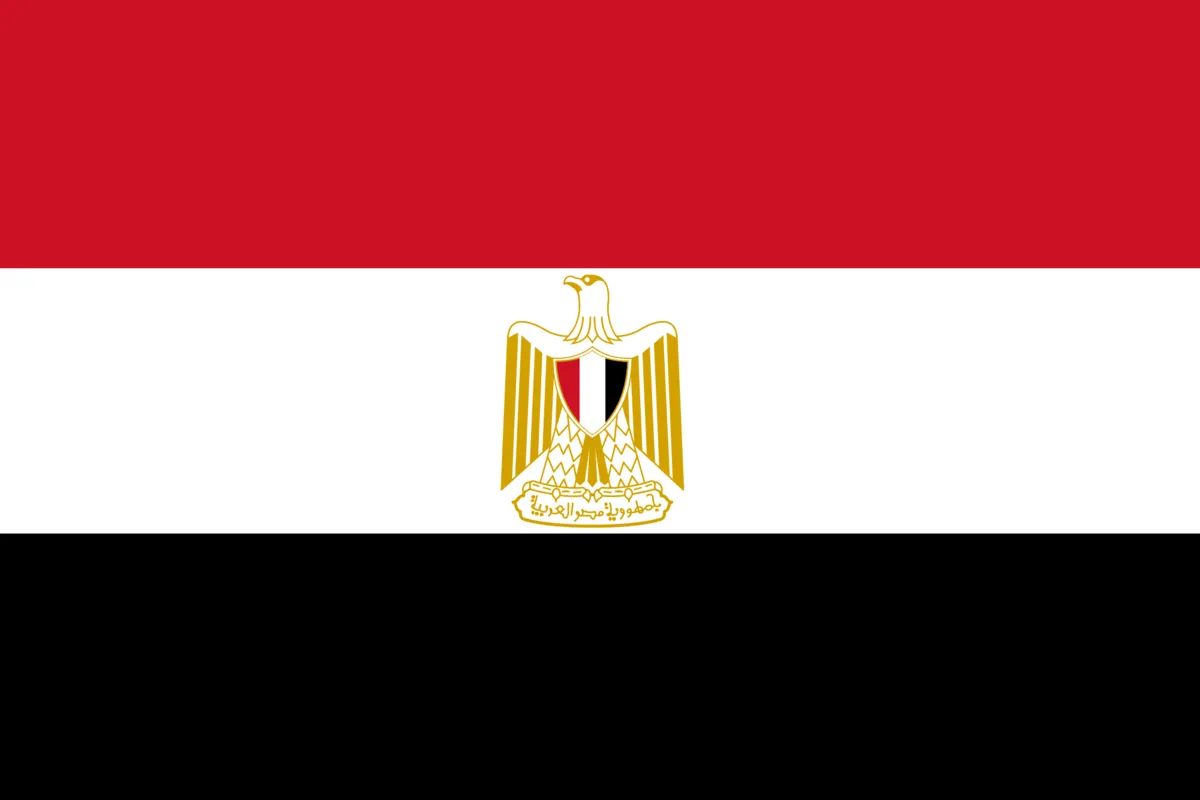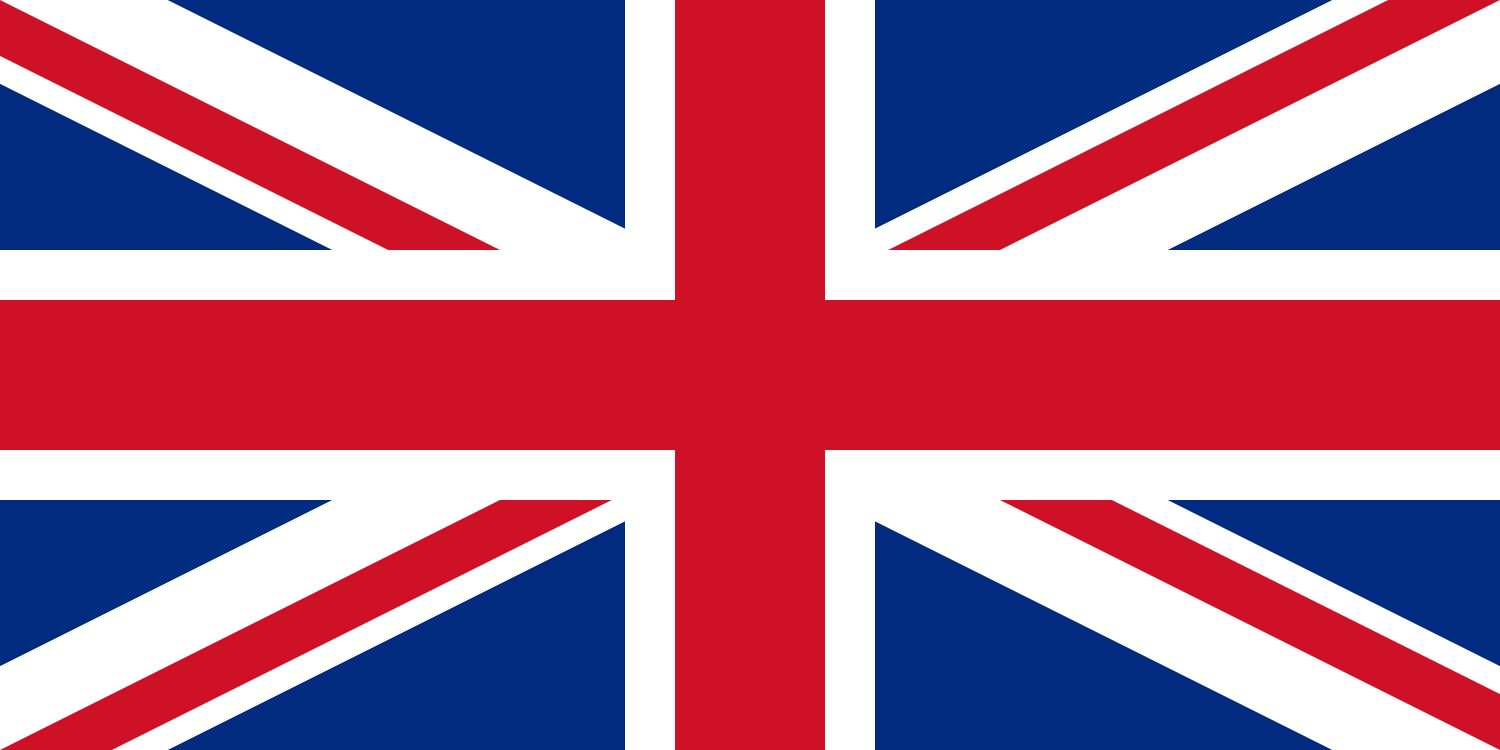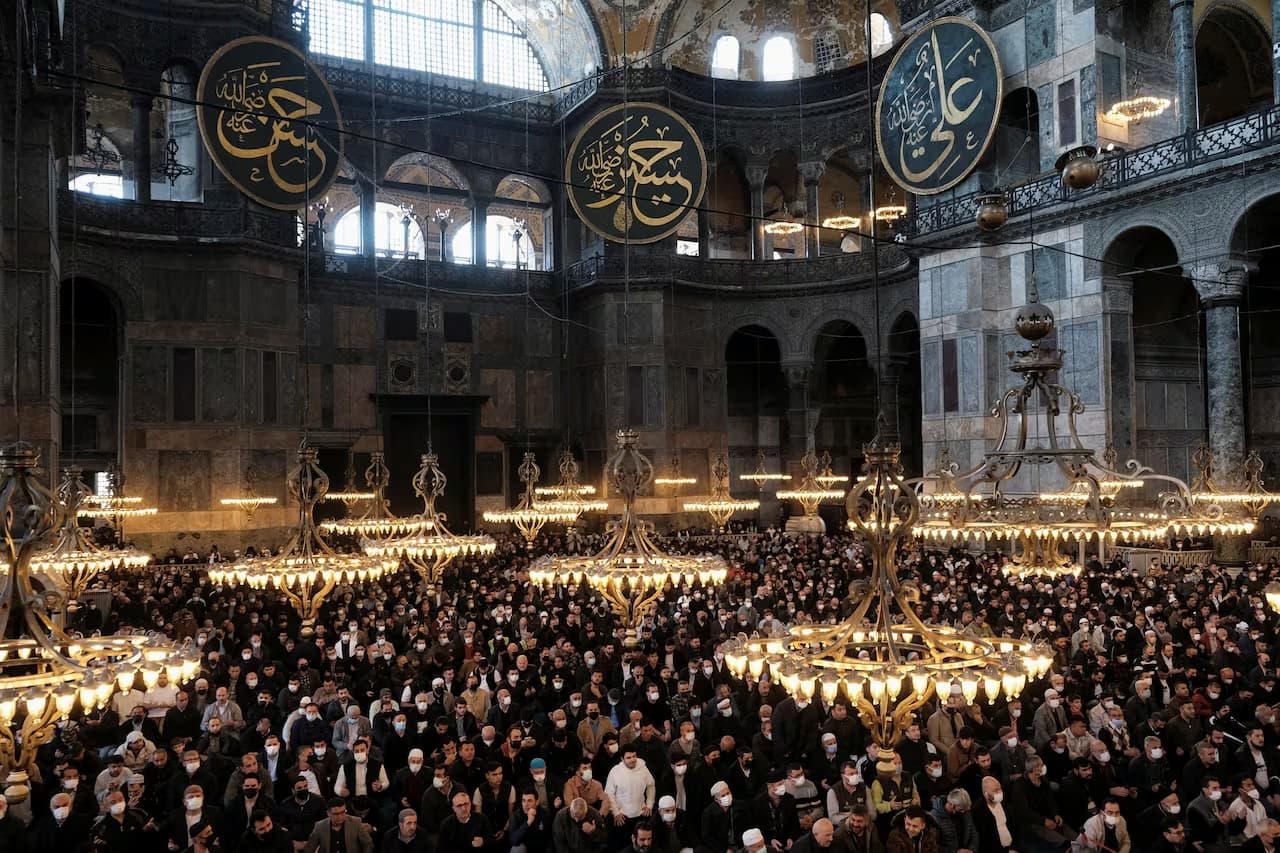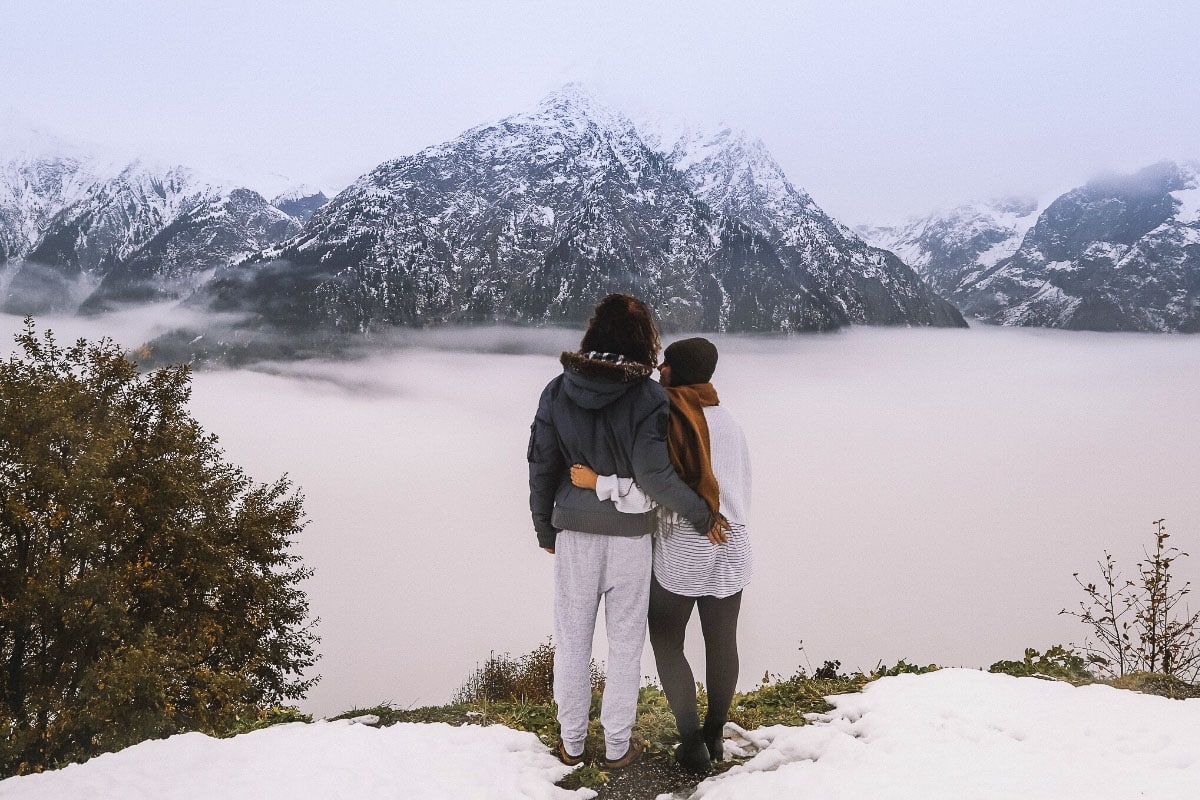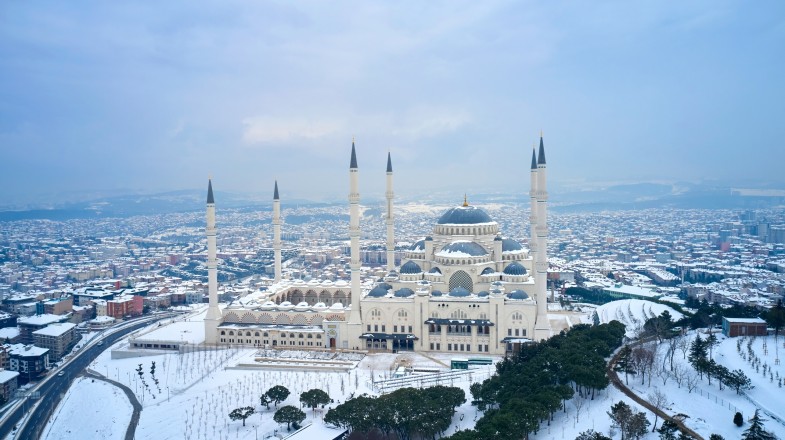If you are planning a trip to Turkey during the holy month of Ramadan, you are in for a unique and culturally rich experience. Contrary to some misconceptions, Turkey welcomes tourists during this special time, offering a blend of traditional practices and modern festivities.
Here is everything you need to know to make the most of your visit to Turkey during Ramadan.
The Significance of Ramadan in Turkey
Ramadan is the holiest month in the Islamic calendar, and its significance lies in Muslims’ commitment to practicing ‘siyam’ or fasting. Fasting is one of the five pillars of Islam, and during Ramadan, Muslims refrain from eating and drinking from sunrise to sunset. This month is a time for reflection, gratitude, and generosity. Muslims engage in acts of charity, including ‘zakat,’ where a portion of their savings is donated to those in need.
The end of Ramadan is celebrated with Eid-Al-Fitr, a joyous occasion when fasting is rewarded, and communities come together for festive celebrations.
When Does Ramadan Take Place in Turkey?
Ramadan falls on the ninth month of the Islamic calendar, with dates varying each year due to the lunar system.
The first day of Ramadan in Turkey is expected to fall on the 10th or 11th of March and end on the 9th or 10th of April, depending on the moon sighting. It’s essential to check the exact dates for Ramadan in Turkey 2024 closer to your visit, as they shift by approximately 10 days each year.
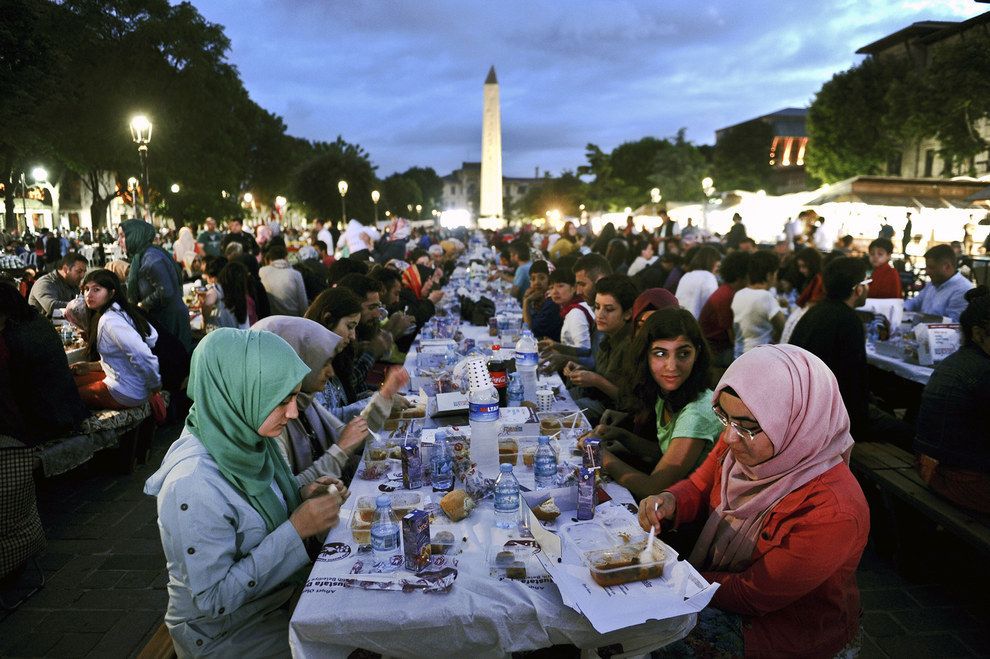
Iftar & Suhoor in Turkey
Iftar, the meal to break the fast, and Suhoor, the pre-dawn meal, are significant events during Ramadan in Turkey. Restaurants across the country go all out to offer extraordinary dining experiences, ranging from high-end luxury options to traditional markets serving local delicacies.
In Istanbul, a unique tradition during Suhoor involves drummers walking the streets, creating a rhythmic wake-up call for those observing the fast.
Local Insight: Look for street vendors offering traditional Ramadan snacks for a quick and authentic culinary experience.
Working Hours During Ramadan in Turkey
While most of the city operates as usual during Ramadan, some places may adjust their opening and closing times. It’s advisable to check the timings of attractions and businesses in advance to plan your activities accordingly.
Insider’s Tip: Museums and historical sites often have adjusted schedules, so plan your visits accordingly and make the most of the quieter mornings.
Eating & Drinking in Public During Ramadan in Turkey
Contrary to some beliefs, tourists can eat and drink in public during Ramadan in Turkey. While not all dining venues are open during the day, an increasing number of restaurants and cafes welcome diners throughout Ramadan. But remember, it’s crucial to be mindful and respectful of those fasting around you while enjoying meals in public spaces.
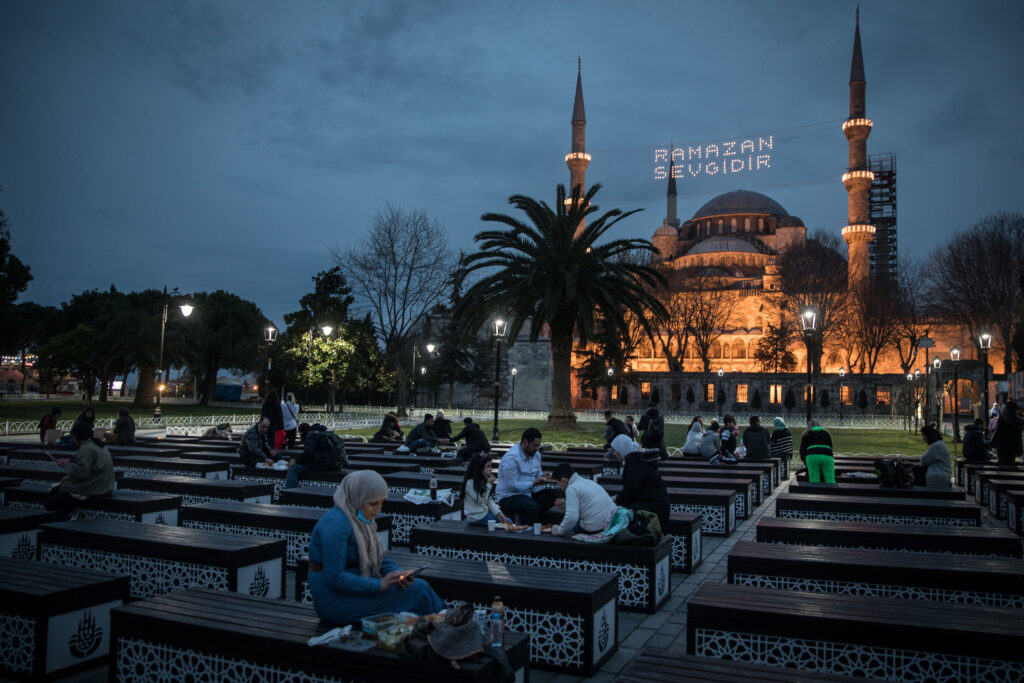
What to Wear During Ramadan in Turkey
Modesty in clothing is a significant practice for Muslims during Ramadan. While there are no specific Ramadan clothing rules, it is recommended to wear modest and appropriate attire that covers shoulders and knees when visiting public places. Checking the dress code of each location beforehand is advisable.
Fashion Tip: Embrace the opportunity to explore local markets for traditional clothing, adding a cultural touch to your wardrobe.
Should Tourists Visit Turkey During Ramadan?
Visiting Turkey during Ramadan offers a unique cultural experience. The atmosphere is vibrant, with music, performances, and community events taking place, especially in Istanbul.
Touristy areas may not see significant changes, but it’s an excellent opportunity to witness the cultural aspect of Ramadan and enjoy a less crowded trip.
Local Wisdom: Engage with locals during Ramadan, attend community events, and gain insights into Turkish traditions.
Things to Do in Turkey During Ramadan
Despite Ramadan’s unique atmosphere, most attractions and activities in Turkey remain open with slight adjustments to timings. Ramadan brings additional experiences like night markets, festive stalls, Ramadan tents, mosque visits, and more. Here are some recommended activities:
- Visit Ramadan markets: Explore the country’s history and culture, shop for traditional souvenirs, and indulge in authentic Iftar and Suhoor meals.
- Experience Iftar in a traditional restaurant: Enjoy the unique ambiance and delicious dishes offered during Iftar in a traditional setting.
- Shop your heart out: Explore Ramadan markets for traditional clothing, souvenirs, and other items.
- Witness the Suhoor Drummers: Experience the rhythmic wake-up call by drummers in the dark hours of Suhoor.
Adventure Seeker’s Tip: Consider taking a hot air balloon ride in Cappadocia during Suhoor for a breathtaking sunrise experience.
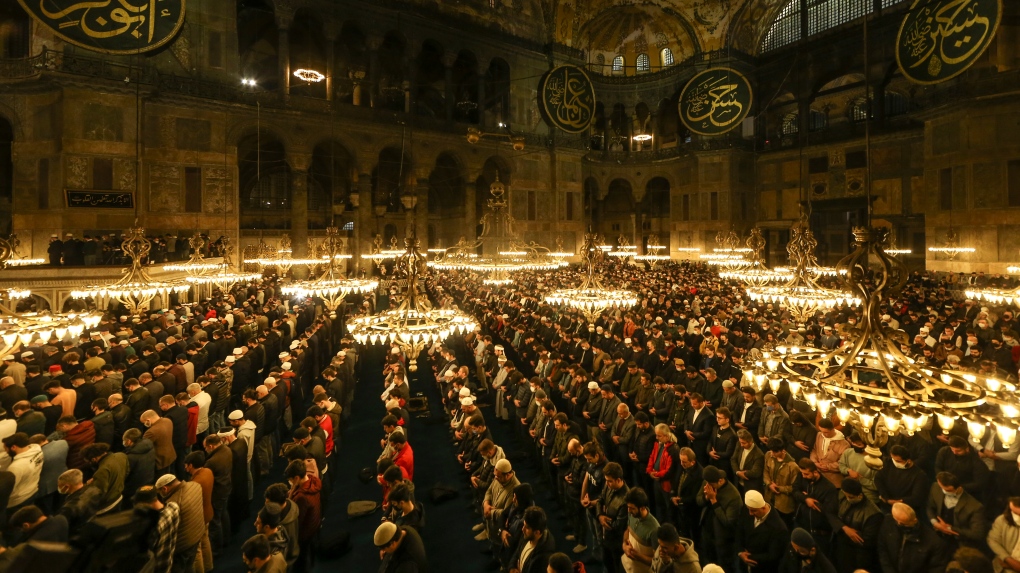
Events During Ramadan in Turkey
While most events proceed as usual, some places may not host live music or bands during Ramadan. However, there are still plenty of cultural and community events to enjoy.
Event Explorer: Check local event calendars for cultural performances, art exhibitions, and special Ramadan-themed activities.
Dos & Don’ts During Ramadan in Turkey
DO:
- Follow Ramadan rules and respect cultural traditions.
- Adhere to a modest dress code.
- Be mindful of eating and drinking in public spaces.
- Wish people ‘Ramadan Mubarak’ or ‘Ramadan Kareem.’
- Make reservations for Iftar and Suhoor plans.
DON’T:
- Be disrespectful towards cultural traditions.
- Play loud music in public spaces.
- Engage in inappropriate behavior in public.
Eid-Al-Fitr in Turkey
The conclusion of Ramadan is marked by Eid-Al-Fitr, a time for joyful celebrations with family and friends. Expect light shows, fireworks, special dining experiences, and a lively atmosphere throughout the city. Residents often enjoy an extended holiday, adding to the festive spirit.
Visiting Turkey during Ramadan offers a unique blend of cultural immersion and festive experiences. By embracing local customs and respecting the significance of the month, tourists can enjoy a memorable and enriching trip to this beautiful country.

